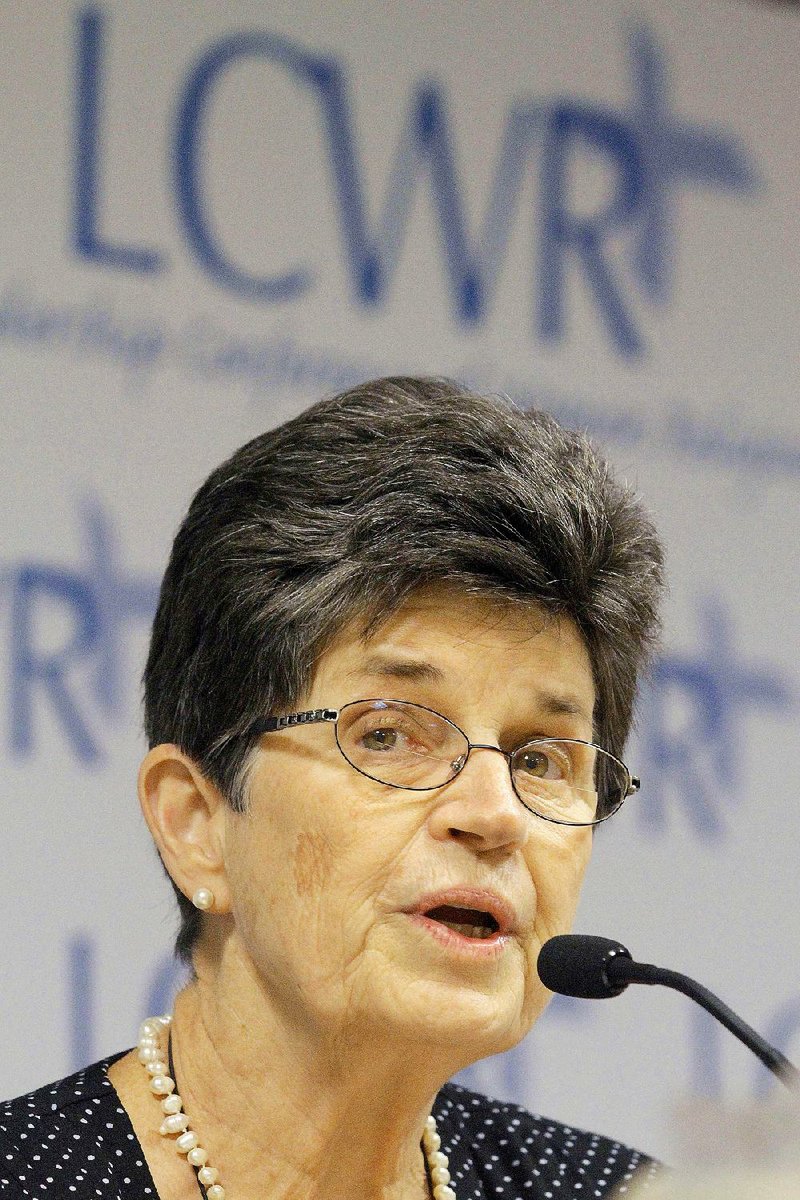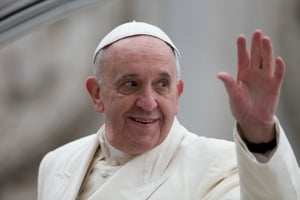The Vatican has abruptly ended its standoff with U.S. nuns, announcing that the investigation and oversight of the nuns' main leadership group has been finished two years earlier than expected, without instituting any major changes that would affect the group's practices or direction.
Four of the leaders of the U.S. nuns' group, the Leadership Conference of Women Religious, were called to an unexpected meeting Thursday with Pope Francis in the Vatican that lasted 50 minutes. He did not speak publicly, but the sisters said afterward in a statement that they were "deeply heartened" by Francis' "expression of appreciation" for the lives and ministry of Catholic sisters.
The sweeping investigation of U.S. women's religious orders was begun under Francis' predecessor, Pope Benedict XVI, at the urging of U.S. and some foreign prelates who accused the sisters of disobeying the bishops and departing from Catholic doctrine. It set off protests by Catholic laypeople across the country, who signed petitions and sent letters to the Vatican in defense of the sisters.
The matter has now been brought to an early conclusion by Francis, who has never spoken directly about it in public but has often talked of the important role of women in the church and the role of nuns and priests in religious orders. He is a member of the Jesuit order.
The news came in a brief report issued jointly by the Leadership Conference of Women Religious and the three U.S. bishops who had been appointed by the Vatican three years ago to take over and overhaul the organization.
The report cast the process as one of "collaboration," saying, "Our extensive conversations were marked by a spirit of prayer, love for the Church, mutual respect, and cooperation. We found our conversations to be mutually beneficial."
It was a far cry from three years ago, when the Vatican's doctrinal office, led by an American cardinal, William Levada, issued a report finding that the Leadership Conference had "serious doctrinal problems."
It said the sisters were questioning church doctrine on homosexuality and the male-only priesthood, and promoting "radical feminist themes incompatible with the Catholic faith."
The power struggle between the nuns and the church's hierarchy had been building for decades. At issue were questions of obedience and autonomy, what it means to be a faithful Catholic and different understandings of the Second Vatican Council.
In 2012, nuns with the Leadership Conference of Women Religious argued that the Vatican under Pope Benedict seemed to regard questioning as defiance, while the sisters saw their stance as a form of faithfulness.
"We have a differing perspective on obedience," said Sister Pat Farrell, the president of the Leadership Conference at the time.
"Our understanding is that we need to continue to respond to the signs of the times, and the new questions and issues that arise in the complexities of modern life are not something we see as a threat."
The sisters were essentially caught in the riptide between a progressive wing of the Catholic Church eager for change and a traditionalist flank focused on returning to what it sees as doctrinal fundamentals.
Most of the nuns have spent their lives serving the sick or needy -- and not engaged in battles over theology. But when some sisters began to question church prohibitions on women serving as priests, artificial birth control or the acceptance of same-sex relationships, their religious orders did not shut down such discussion or treat it as apostasy.
The sisters have said for years that they see no contradiction in embracing the Catholic faith while also being open to questioning certain church teachings based on new information or new experiences.
Without taking a stand in favor of the ordination of women or the acceptance of same-sex relationships, members insisted that open discussion of church doctrine was not only their right but was also healthy for the church.
A Section on 04/17/2015


